Unlock the Secret to Luscious Locks: The Power of Hair Masks for Healthy Hair
When it comes to maintaining healthy and beautiful hair, using hair masks can make a remarkable difference. Hair masks are intensive treatments designed to nourish, repair, and protect your locks, providing a wide range of benefits. In this article, we will delve into the world of hair masks, exploring their effectiveness in promoting hair health, growth, and addressing common hair concerns. Whether you are looking to combat dryness, frizz, or dandruff, or simply enhance the overall condition of your hair, incorporating hair masks into your routine can be a game-changer. Let's uncover the secrets to achieving enviable tresses with these rejuvenating treatments.
Understanding the Benefits of Hair Masks
1. Nourishment for Healthy Hair
Hair masks are formulated with a potent blend of ingredients that penetrate deep into the hair shaft, providing intense nourishment. These treatments often contain essential oils, vitamins, proteins, and other enriching compounds that replenish the hair's natural moisture, restoring its vitality and luster. By infusing your hair with the necessary nutrients, masks promote overall hair health and protect it from damage caused by environmental stressors, heat styling, and chemical treatments.
2. Hair Growth and Strengthening
If you desire longer and stronger locks, incorporating hair masks into your routine can be highly beneficial. Many hair masks are specifically formulated to promote hair growth and strengthen the strands. Look for masks enriched with ingredients such as biotin, keratin, and collagen, as they have been shown to enhance hair's structural integrity, reduce breakage, and stimulate follicle activity. Regular use of these masks can help you achieve the length and thickness you've always desired.
3. Addressing Dryness and Frizz
Dry, frizzy hair can be a constant struggle, but hair masks offer an effective solution. Masks infused with moisturizing agents like shea butter, argan oil, and aloe vera can deeply hydrate your strands, combating dryness and taming frizz. These ingredients work by sealing the hair cuticles, preventing moisture loss and providing a smooth, sleek appearance. By incorporating a hydrating mask into your hair care routine, you can say goodbye to unruly tresses and hello to soft, manageable locks.
4. Combating Dandruff and Scalp Issues
Dandruff can be both embarrassing and uncomfortable, but hair masks can provide relief by targeting the underlying causes. Look for masks containing ingredients like tea tree oil, salicylic acid, and zinc pyrithione, known for their antifungal and anti-inflammatory properties. These components can effectively soothe an irritated scalp, reduce flakiness, and eliminate dandruff-causing fungi. Regular application of these masks can help restore scalp health and promote a clean, itch-free environment for your hair to thrive.
DIY Hair Masks: Unleash the Power of Natural Ingredients
While there are numerous hair masks available in the market, you can also create your own DIY concoctions using readily available ingredients from your kitchen. DIY hair masks offer a cost-effective and customizable alternative, allowing you to tailor the treatment to your specific hair needs. Let's explore a few homemade hair masks for different hair concerns:
1. Avocado and Banana Mask for Dry, Damaged Hair
Ingredients:
1 ripe avocado
1 ripe banana
2 tablespoons of honey
2 tablespoons of coconut oil
Instructions:
Mash the avocado and banana in a bowl until you achieve a smooth consistency.
Add honey and coconut oil, then mix well.
Apply the mask generously to damp hair, focusing on the ends and damaged areas.
Leave it on for 30 minutes to an hour.
Rinse thoroughly with lukewarm water and follow with your regular shampoo and conditioner.
This nourishing mask combines the moisturizing properties of avocado, banana, and coconut oil with the repairing benefits of honey. Together, these ingredients deeply condition the hair, leaving it soft, silky, and revitalized.
2. DIY Mask for Hair Growth
Ingredients:
2 tablespoons of castor oil
1 egg
1 tablespoon of honey
Instructions:
In a bowl, mix the castor oil, egg, and honey until well combined.
Apply the mask to your scalp and hair, massaging gently.
Leave it on for 30 minutes to an hour.
Rinse thoroughly with lukewarm water and shampoo as usual.
3. DIY Mask for Dry, Frizzy Hair
Ingredients:
1 ripe avocado
2 tablespoons of olive oil
1 tablespoon of coconut oil
Instructions:
Mash the avocado in a bowl until smooth.
Add olive oil and coconut oil, then mix well.
Apply the mask to damp hair, focusing on the ends and damaged areas.
Leave it on for 20-30 minutes.
Rinse thoroughly and follow with a gentle shampoo and conditioner.
Experimenting with different DIY masks allows you to find the perfect combination of ingredients that work best for your hair's unique needs.
Hair Masks for Dandruff: Soothe and Clarify Your Scalp
Dandruff can be a persistent and frustrating issue, but specialized hair masks can help combat this condition. Look for masks containing:
Tea Tree Oil: Known for its antifungal and antibacterial properties, tea tree oil effectively reduces dandruff-causing fungi.
Salicylic Acid: Exfoliates the scalp, removing dead skin cells and reducing flakiness.
Zinc Pyrithione: Fights dandruff-causing microorganisms and helps normalize the scalp's pH.
By incorporating these masks into your hair care routine, you can alleviate scalp irritation, minimize dandruff, and maintain a healthy scalp environment.
Hair Masks for Curly Hair: Embrace Your Natural Curls
Curly hair requires extra care and hydration to maintain its natural bounce and definition. Look for hair masks that cater specifically to curly hair needs. These masks often contain:
Shea Butter: Hydrates and defines curls, reducing frizz.
Coconut Oil: Provides moisture and enhances the natural shine of curly hair.
Aloe Vera: Soothes the scalp and adds moisture to the hair, promoting curl formation.
Regular use of these masks can help keep your curls well-nourished, defined, and manageable.
Hair Masks for Low Porosity Hair: Enhancing Absorption
Low porosity hair has a harder time absorbing moisture and nutrients, but targeted hair masks can help overcome this challenge. Look for masks with:
Protein: Strengthens the hair and improves moisture retention.
Humectants like glycerin or honey: Attract and retain moisture, promoting hydration.
These masks help open the hair cuticles, allowing moisture and nutrients to penetrate the strands effectively.
Hair Masks for Hair Growth: Unlock Your Hair's Potential
Boosting Hair Growth Naturally
Achieving longer and healthier hair is a common goal for many individuals. Hair masks enriched with key ingredients can stimulate hair growth and contribute to longer, more voluminous locks. Look for masks that contain:
Biotin: Known for its role in promoting healthy hair growth.
Keratin: Helps strengthen and fortify the hair strands, reducing breakage.
Collagen: Enhances the hair's structural integrity, promoting overall hair health.
By incorporating hair masks designed specifically for hair growth into your routine, you can support your hair's natural growth cycle and achieve the length and thickness you desire.
Hair Masks for Dry Frizzy Hair: Taming Unruly Tresses
Dry, frizzy hair can be a daily struggle, but with the right hair masks, you can regain control and restore moisture to your locks. Look for masks that offer intense hydration and nourishment, featuring ingredients such as:
Shea Butter: Deeply moisturizes and softens the hair, combating dryness.
Argan Oil: Rich in essential fatty acids, it helps restore shine and manageability.
Aloe Vera: Soothes the scalp, reduces frizz, and adds moisture to the hair.
These masks provide the necessary hydration to smooth the hair cuticles, resulting in a sleek and polished look.
What to Avoid in Hair Masks?
While hair masks can work wonders for your hair, it's essential to be aware of certain ingredients that may do more harm than good. Avoid masks that contain:
1. Sulphates: These harsh detergents can strip the hair of its natural oils, leading to dryness and damage.
2. Parabens: Commonly used as preservatives, parabens have been associated with potential health risks.
3. Silicones: While they can provide temporary smoothness, silicones can build up on the hair over time, causing heaviness and dullness.
When choosing a hair mask, opt for those labeled as sulfate-free, paraben-free, and silicone-free for the best long-term results.
Are Hair Masks Actually Good for Your Hair?
Hair masks, when used correctly and with the right ingredients, can be extremely beneficial for your hair. They provide deep nourishment, hydration, and repair damaged strands. Hair masks address various hair concerns such as dryness, frizz, and dandruff, and can promote hair growth and scalp health. However, it is important to choose masks that are suited to your hair type and needs. Reading labels and selecting masks with high-quality, natural ingredients will ensure the best results.
Conclusion
Incorporating hair masks into your hair care routine can work wonders in achieving and maintaining healthy, beautiful hair. Whether you are seeking hair growth, combating dryness and frizz, addressing dandruff, or embracing your natural curls, there is a hair mask specifically designed for your needs. By using nourishing store-bought masks or creating your own DIY treatments, you can personalize your hair care experience. Remember to avoid harmful ingredients and select masks tailored to your hair type. With regular use and proper care, you can leave others in awe as your hair shines with vitality and radiance.
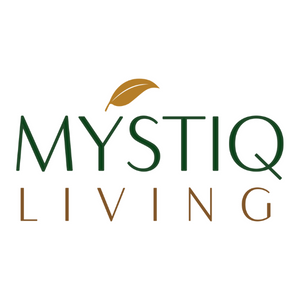
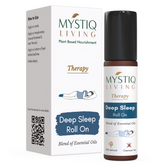
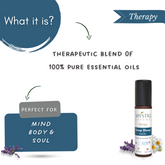
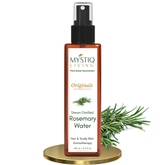
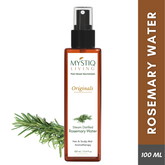
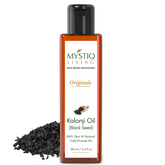
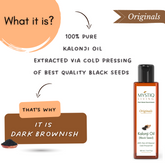
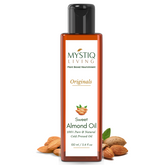
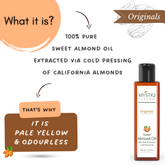
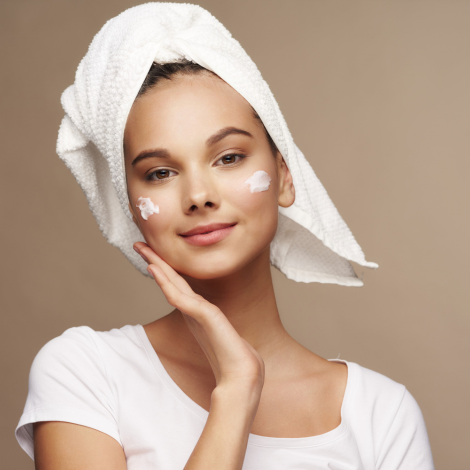
Leave a comment
Please note, comments need to be approved before they are published.